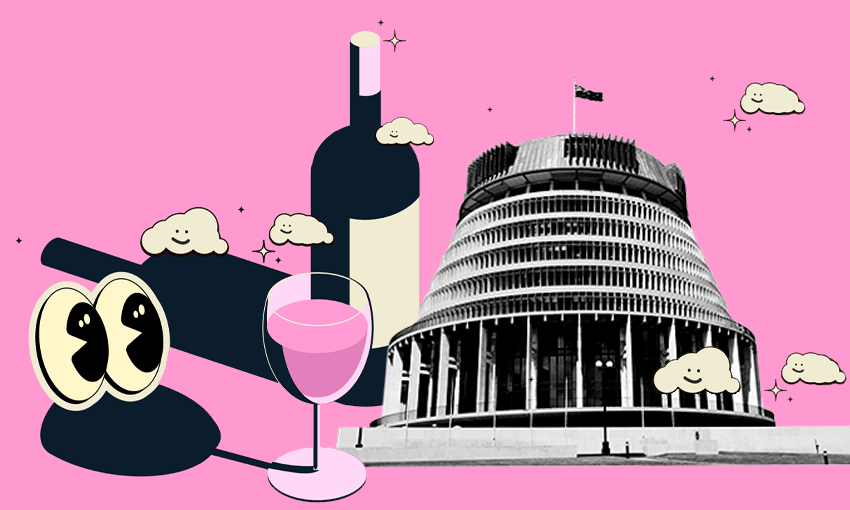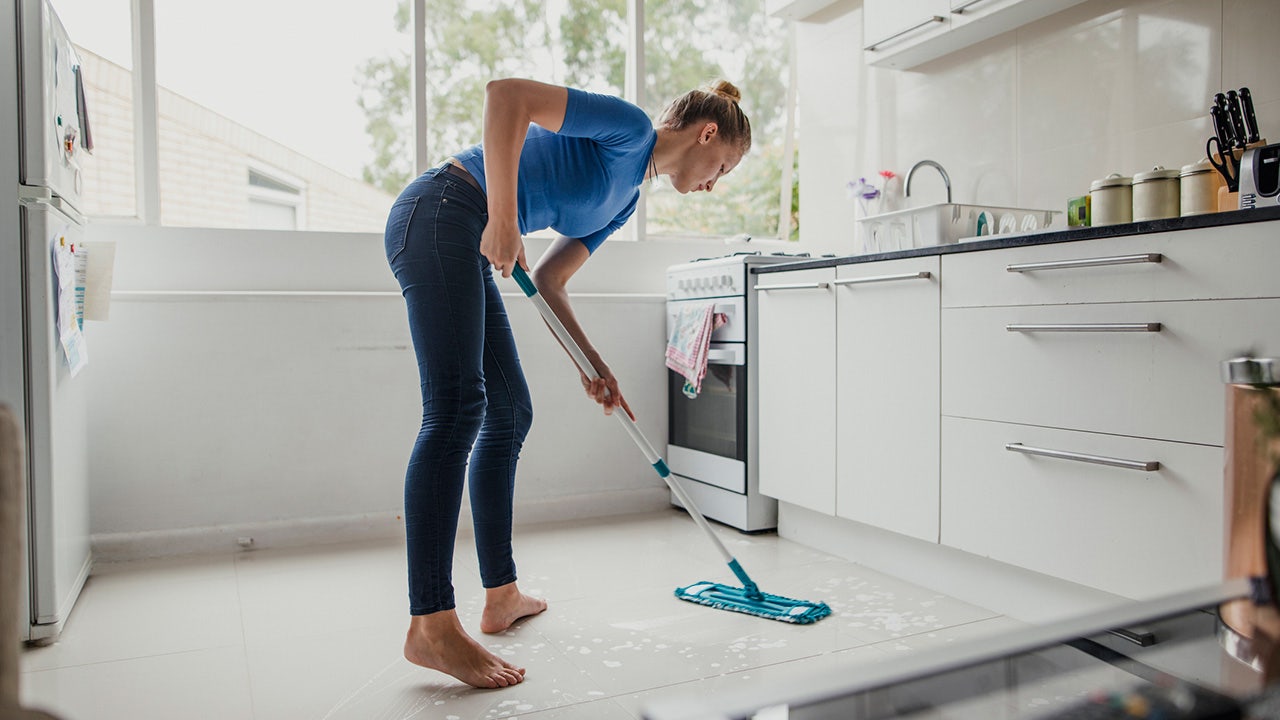An important detail missing in Super Netball’s parental leave policy will be a key focus throughout the bargaining process of the next collective player agreement (CPA), which is being worked through by Netball Australia (NA) and the Australian Netball Players’ Association (ANPA).
Netball has typically been lauded as a leader in women’s sport and — certainly in September 2016, when NA announced its CPA for the newly vamped all-Australian netball league beginning in 2017 — it was the first team sport in the country to officially put a parental leave policy in place.
Players were offered maternity leave, with 100 per cent income protection for up to two years on all earnings for contracted athletes, babysitters to help during work commitments, and financial support to cover the costs of travel for children under the age of 12 months (or still being breastfed), alongside a carer for away games.
Since then, the A-League Women (September 2017), AFLW (November 2017), WNBL (October 2018) and Cricket Australia (October 2019) have all introduced their own versions of a pregnancy policy, while NRLW started working on one in October last year that is yet to be formally introduced.
Although Super Netball reviewed its policy throughout the league’s 2020-21 CPA negotiations, these other sports now have better standards in place.
When it comes to travel, both cricket and basketball will accommodate and offer additional care on away trips for children up to the age of four, the AFLW updated its policy in May 2022 to include children up the age of three, and the A-League Women and NRLW say it will do the same for children up to the age of two.
But the most pressing issue for mothers in Super Netball relates more so to job security, as their policy only guarantees income protection until the end of their playing contract, and this came unstuck last year when Romelda Aiken-George was let go by the Queensland Firebirds.
Aiken-George departs Firebirds
In 2022, the shooter was set to play her 15th consecutive season in purple, but that changed when she fell pregnant.
The 34-year-old had still hoped to play the first few rounds and reach the impressive milestone of 200 games, but a mixture of morning sickness and a bout of COVID-19 saw her withdraw from the league five days before the first game.
In her place, the Firebirds signed First Nations shooter Donnell Wallam, who went on to have a breakout season, shooting 519 goals and earning a call-up to the Australian Diamonds.
There was no way the Queensland side were going to let such a raw talent go and, sure enough, when it came time for Super Netball’s contract-signing period in July, Wallam was promoted from a replacement player to a full-time contract.
Around that time, they also secured upcoming shooter Mia Stower for a second straight year and Diamonds goal attack Gretel Bueta — widely considered as the world’s best right now — was another guaranteed lock-in.
The Firebirds were clearly looking to the future, but this left Aiken-George’s fate uncertain because she had only been signed on a one-year deal back in September 2021.
The club offered her a training partner contract, which Aiken-George found offensive after all the years of service she had put in and, ultimately, the controversy played out in a very public way when Aiken-George voiced her thoughts on the matter online.
At the heart of that controversy, Aiken-George said she had been told she was “too risky” to sign, because, at that stage, she was heavily pregnant and due in August.
The club firmly denied this phrase was used and said the decision to offer Aiken-George a training partner contract was purely for high-performance reasons and not because she was pregnant.
What the Firebirds were not to know, is that Bueta would end up pregnant herself during the off-season, meaning they were one shooter short again for 2023.
Had Aiken-George been kept on the books, she would have likely been elevated to the fully contracted team of 10, instead she had already left to pursue a training-partner opportunity with the NSW Swifts.
Butler retires too early
At the time, former president of the ANPA Nat Butler (née Medhurst) was very outspoken about the situation, particularly around the communication of the decision and the stressful way it played out for the veteran weeks before she was due to give birth.
Butler — herself, a three-time World Cup winner with the Diamonds — has signed a training partner contract with the West Coast Fever this year, at age 39, after retiring prematurely in 2020.
The goal attack had been playing with the Collingwood Magpies when she made that announcement, influenced by the frustration of trying to obtain entry into the Queensland state for her husband Sam so that he could help care for their newborn son in the Super Netball COVID-19 competition hub, as well as some unhelpful attitudes from another player within the Magpies team.
Aiken-George’s story therefore struck a chord with Butler two years down the track, who felt compelled to speak up about the inconsistent treatment of pregnant athletes in Super Netball.
“I remember, as my pregnancy progressed, I was kept away from the Collingwood club, even though I had every medical clearance to be around it and train if I wanted to,” Butler told the ABC.
“I also felt very isolated in my return from pregnancy, because I had no medical support around me, trying to help me return to play, even though I was doing everything possible to try to be fit.
“Then when I was trying to get into the hub, I had a conversation with a member within the team and they said to me that they thought I would be ruining it for all future mums due to the costs incurred for me to join them, and there was obviously a lot of emotion with that.
“Being pregnant and then having a baby, the hormones are everywhere … It was completely unexpected and, amongst everything else that was going on at the time, I just went ‘I’m done. I’m sick of dealing with this and I don’t deserve to be made to feel this way’, particularly in a sport that I’d given so much to.
“There is a pregnancy policy in place, so to have a player say that I was ruining it for others by trying to fulfil my contract, which I had every right to do, was really hurtful.”
After working on the Super Netball host broadcast during her short retirement, Butler decided she still had more to give and a conversation with then-West Coast assistant coach Belinda Reynolds saw Butler compete at the 2022 Australian Netball Championships with the Fever reserves.
She played well enough to get a follow-up opportunity with Dan Ryan’s senior Fever team in 2023 and, now, alongside Aiken-George, Butler is challenging the stereotypical age-and-career trajectory of a Super Netball training partner as an experienced player in her 30s.
Last week, Aiken-George made her debut for the NSW Swifts as a replacement player for the injured Sam Wallace, and Butler made waves at the pre-season Team Girls Cup and is hoping to make it back on court during the official season.
But it should not have to come to this.
Different treatment club-to-club, player-to-player
Their experiences have certainly been very different to those of someone such as Sunshine Coast Lightning defender Karla Pretorius, who made her return to elite netball in January after taking last year off throughout her first pregnancy.
The South African had already been signed through to the end of the 2023 season when she announced she was expecting in December 2021 and, despite spending last year in her home country, in a totally different time zone to the competition, Pretorius says she still felt connected to the club.
“I definitely had a good experience with regards to job security, but I think it’s so important that we continue to keep talking about this stuff,” Pretorius told The Netty Life podcast.
“From my perspective, I was always honest with Lightning. They knew that we had a plan to try to start a family. They were very supportive in that and still offered me a two-year contract … But I don’t think that means you necessarily have to set out your plans completely for your club.
“We want to get to a point where, no matter who you are, what club you play for, or where you come from, that we are all treated equally and fairly.”
Another mum who has been treated much better than Aiken-George is her previous Firebirds shooting partner Bueta, proving the experience is not only different club-to-club, but also player-to-player.
Bueta announced she was pregnant with her first baby in July 2020 and sat out the season that year, which had been delayed due to restrictions around the pandemic.
Despite this, she was made the vice-captain of the team and did her best to guide them from the sidelines as part of the coaching staff. In October, she was re-signed for the 2021 season and made her return four months after giving birth in January the next year in Round 1.
This was very different to how the Firebirds approached Aiken-George’s pregnancy, preferring to wait and see if the Jamaican deserved another shot on court after birth.
Bueta signed another two-year extension with the club in August 2021 to take her through to the end of 2023 and, over the past six months, has been supported by the Firebirds while suffering a miscarriage in November and falling pregnant again in February.
This year, Bueta will again help coach the team as she sits out the season and, although this is a wonderful example of how netball can keep mothers involved in the sport and support them as they start a family, it would be nice to see this level of treatment echoed for all athletes.
Bueta is actually due to give birth around the time of the next signing period, putting her in the same situation as Aiken-George last year.
Although it’s hard to see the Firebirds letting the shooter go — as she is five years younger and in the prime of her career — a swift change to the new CPA could ensure this does not happen to another player again.
“Gretel Bueta is a phenomenal athlete and seems like an incredible mum and a wonderful person,” Butler said.
“I feel like she’s been put on a pedestal that this is how mums are treated within the sport, but it’s actually not the case for everyone.
“I’ve had other friends in netball [who] have also been treated quite poorly, so I know we look to something like that and go, ‘Aw, netball is so supportive’ but, unfortunately, I know that that’s not the case across the board.”
Negotiations for the next Super Netball CPA are well and truly underway, but the deal is reportedly nowhere close to being finalised.
The ANPA is said to be keenly consulting both Aiken-George and Butler, as well as Pretorius and Bueta, to work out how to approach the bargaining process around pregnancy and contract security.
If netball was to look to other sports for inspiration in this department, Cricket Australia has probably set the best example, guaranteeing players that fall pregnant a contract extension for the following year.
Surely the world’s premier netball competition and its clubs, featuring Australia’s leading women’s sport, could guarantee its athletes the same.



















Discussion about this post